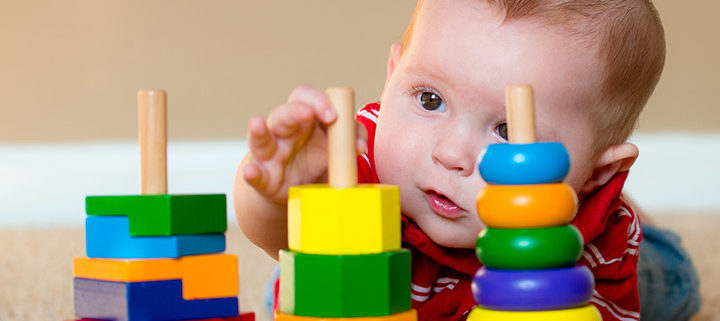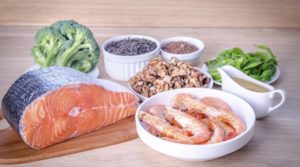How to Have a Smart Baby
Living a healthy lifestyle while you’re expecting helps your baby grow big and strong, but did you know it can make her smarter too? In fact, simple choices that you make every day, from eating a leafy-green salad for lunch to hitting the treadmill for a workout, can help build her brain. What you do while you’re pregnant can have as much impact on your child’s brain development and future intelligence as what you do after you give birth and taking care of yourself now will help prepare your baby to be an active learner.
Lowered Autism Odds:
Pop Your Prenatal Vitamin Daily
Taking it will help ensure that you get the balance of nutrients your baby needs, like folic acid and vitamin B12 to make red blood cells, vitamin C to produce collagen, vitamin D for bone building, and zinc for brain development. If your vitamin upsets your stomach, don’t just ditch it: Try taking it with a meal, or talk to your doctor about switching brands.
Get Omega-3s
Fish, rich in omega-3 fatty acids, may boost your baby’s brain power. In a study from Harvard Medical School, the more fish women ate during the second trimester, the higher their babies scored on a mental-development test at 6 months of age. Omega-3s are found in brain-cell membranes, so there are plenty of ways they can influence brain function, says Lisa Eliot, Ph.D., assistant professor at Rosalind Franklin University of Medicine and Science, in Chicago. If you don’t like fish, talk to your doctor about taking a fish-oil supplement.
Pump Up Iron
 Your iron intake needs to double during pregnancy since iron helps deliver life-sustaining oxygen to your baby. Iron helps promote the growth of healthy red blood cells, which carry oxygen to your baby’s brain. Trouble is, many women enter pregnancy already deficient, says Somer. If your baby’s deprived of oxygen in the womb, the risk of poor growth — and lower IQ — increases. Ask your doctor to test you for iron deficiency. Then make sure your diet includes iron-rich foods like lean beef, chicken, legumes, beans, spinach, tofu and as well as iron-enhanced cereals.
Your iron intake needs to double during pregnancy since iron helps deliver life-sustaining oxygen to your baby. Iron helps promote the growth of healthy red blood cells, which carry oxygen to your baby’s brain. Trouble is, many women enter pregnancy already deficient, says Somer. If your baby’s deprived of oxygen in the womb, the risk of poor growth — and lower IQ — increases. Ask your doctor to test you for iron deficiency. Then make sure your diet includes iron-rich foods like lean beef, chicken, legumes, beans, spinach, tofu and as well as iron-enhanced cereals.
Increased Intelligence:
Working out will give you the stamina you need for labor and delivery, and it can also strengthen your baby’s brain. According to a study in the Journal of the American College of Sports Medicine, children of moms who exercised during pregnancy scored higher on tests of language skills and intelligence at age 5 compared with the kids of sedentary moms. Why? Moderate levels of cortisol — a stress hormone that’s also secreted when you exercise — promote the growth and development of your baby’s brain, as well as his other major organs. Experts recommend 30 minutes of moderate exercise for pregnant women on all or most days of the week.
Maximum Brainpower:
Fetal Brain Development
The fetal brain goes through several stages of development. During the first trimester, the nerve cells form but are not actually developed as a brain. Impulses begin to fire without pattern or direction. Sensory organs and nerves are not developed at this point, so the fetus does not feel pain. During this time, it’s especially important to avoid chemicals and dangerous substances. The first trimester is a time of exponential growth.
During the second trimester, nerve functions start to synchronize and differentiate. The sensory organ begins development, as do the nerves. About the 5th month, the baby can now start to feel, although the sensations they feel are very limited and erratic. Those healthy fats provide faster development and healthier nerve connections.
During the last trimester, the brain is forming learning abilities and beginning memories. This is a time where exposure to classical music and soothing sounds will affect the child’s disposition later in life.
Be Mindful of Mercury
Fish is good for your baby’s brain, but you do need to take a few precautions. Mercury contamination in some fish may be harmful. The Food and Drug Administration advises all pregnant women to avoid shark, tilefish, king mackerel, and swordfish completely since they contain the highest levels. Some lower-mercury options: salmon, catfish, pollack, whitefish, tilapia, and shrimp. Even with these varieties, you should limit all fish to 12 ounces (about two meals) per week. And opt for canned light tuna over canned white albacore, which has more mercury.
Produce contains antioxidants, which are good for your baby. “Antioxidants protect the baby’s brain tissue from damage,” says nutritionist Elizabeth Somer, RD, author of Nutrition for a Healthy Pregnancy. Choose deep-colored produce — like dark leafy greens, papaya, blueberries, and tomatoes — for the biggest antioxidant punch. Regular consumption of fruit is known to reduce a variety of health complications such as Alzheimer’s or preventing weight gain but now new research has suggested that we may benefit from a diet high in fruit earlier than we thought.
Child development experts in Canada found that women who eat fruit during their pregnancy are more likely to give birth to smarter children than those who do not or eat very little fruit.
Avoid Alcohol
Though fetal alcohol syndrome is associated with heavy alcohol abuse during pregnancy, even moderate amounts of beer, wine, or liquor can harm a baby’s brain, according to the March of Dimes. Light to moderate drinking can lead to problems with learning, attention, memory, and social skills down the road.
Don’t Gain Too Much
You’re eating for two now, but packing on too many pounds during pregnancy ups your chances of a premature delivery — and babies born early may be at a disadvantage when it comes to learning. “Premature delivery is one of the greatest risk factors for mental impairment,” says Dr. Lise Eliot. “There’s a strong link between birth weight, IQ score, and school achievement.” What’s the connection? Babies born early miss out on the unique nourishment that the placenta provides, are exposed to stimuli they’re normally protected from in the womb and are more vulnerable to infection. To keep your weight healthy, follow these guidelines:
- If you’re currently a normal weight, gain 25-35 pounds.
- f you’re currently overweight, gain 15-25 pounds.
- If you’re currently underweight, gain 28-40 pounds.
Your baby’s brain will develop through various experiences and exercises. Senses of touch, smell, sight, sound, and taste will also aid this development process. You need to start giving your baby different sensory experiences from an early age, to help him identify and differentiate things. Development of his cognitive and motor skills will help you know how to raise a smart baby.
The information, including but not limited to, text, graphics, images and other material contained on this website are for informational purposes only. The purpose of this website is to promote broad consumer understanding and knowledge of various health topics. It is not intended to be a substitute for professional medical advice, diagnosis or treatment. Always seek the advice of your physician or another qualified healthcare provider with any questions you may have regarding a medical condition or treatment and before undertaking a new health care regimen, and never disregard professional medical advice or delay in seeking it because of something you have read on this website.
Resources:
https://www.parents.com/pregnancy/my-baby/how-to-have-a-smart-baby-pregnancy-brain-power-boosters/






Leave a Reply
Want to join the discussion?Feel free to contribute!